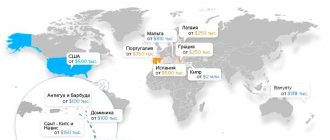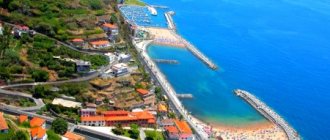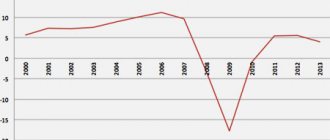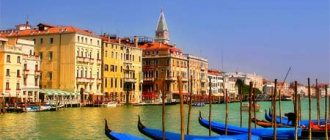Calm and comfortable life in Europe
The countries of the European Union are considered the most developed in the world. Residents of other countries find living conditions there better than in their homeland. This attracts more and more compatriots.
Important factors when choosing are also:
- warm climate;
- close proximity to neighboring countries (you can travel around several countries during your entire vacation or go to these lands for work);
- infrastructure at a decent level;
- economic stability;
- measured pace of life.
For these and many other reasons, European powers are so popular.
What does a residence permit in Europe give?
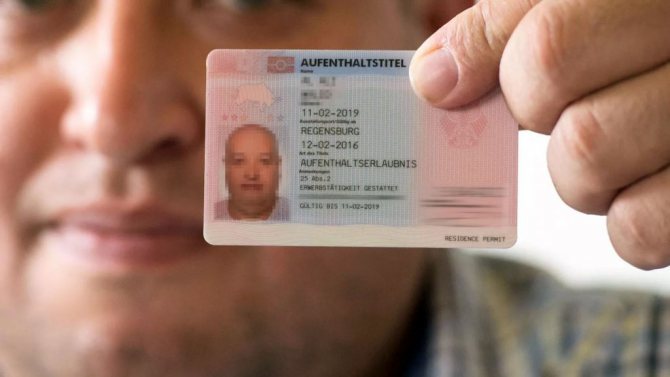
The first and main advantage is that the migrant is not deprived of his existing citizenship. If you obtain citizenship, you will have to renounce it. In addition, a European residence permit is an opportunity to:
- unhindered crossing of the borders of the European Union and the Schengen zone;
- free access to advanced European medicine and education;
- obtaining loans on terms similar to those for indigenous Europeans;
- opening bank accounts – both for individuals and for businesses;
- conducting business in a country with a developed economy, favorable tax policy, economic and investment climate;
- obtaining comprehensive legal and other protection.
In addition, the modern infrastructure and accessible environment of developed countries make life much easier, especially for emigrants from the countries of the former Soviet Union who are accustomed to the struggle for physical survival.
All of the above makes obtaining a residence permit in Europe very attractive, desirable and promising.
What is Schengen and the European Union
28 countries are considered to be members of the Commonwealth with a political and economic orientation. This community is the European Union and gives its participants the following benefits:
- trade between European countries without tax, this allows you to keep the cost of food products, clothing, shoes at the same level;
- The borders are open, if you are a citizen of a country from the European Union, apply for a Schengen visa or residence permit (residence permit), it is permissible to move freely throughout the territory. This provides additional opportunities for work, study, tourism;
- one currency - the euro, this is an indicator of unity between European powers, simplifies trade and economic relations;
- there is no military action on the entire continent, EU countries are not involved in conflicts. The authorities signed the Schengen Agreement more than 35 years ago; this not only ensures conflict-free travel, but also simplifies passport control.
According to Schengen legislation, for legal long-term residence on the territory of a European state, you need to have a residence permit, which is not so easy to obtain. Real reviews about affordable and budget options for obtaining an EU passport can be found on the informative forum of the pokeda.ru portal.
Economic integration – passport in exchange for investment
One of the easiest ways to obtain the status of a citizen of the European Union is economic. The cheapest passports will be Latvian, Spanish and Portuguese samples.
Latvian coast

Latvia has very modest requirements. You just need to purchase real estate here. For the capital Riga or Jurmala, the minimum cost of a house or apartment is 140 thousand dollars. If you want to live far from the country’s major cities, you need to invest at least €72,000.
A person has the right to obtain a residence permit immediately upon completion of the purchase and sale transaction. Moreover, the document applies not only to the owner of the property, but also to his entire family. First, a residence permit is issued for a period of five years, and then it is replaced by an indefinite one.
Residence permit - concept and advantages
A residence permit allows you to stay in Europe in a specific country. It is issued exclusively to foreigners. The document allows you to move freely throughout the territory, buy real estate and register it in your name.
There are several ways to obtain a residence permit:
- buy property;
- apply for a job;
- get an education at a local university;
- register a marriage with a citizen of a European country.
Some powers specifically attract immigrants, this allows them to develop the economy and receive a new population. For example, in Latvia, if you buy a home worth more than 250,000 euros, in addition to a residence permit, they give you a driver’s license as a bonus. However, tough measures may be taken for Russians, and it will soon become impossible to obtain a residence permit through the purchase of real estate.
In Portugal, it is even easier to obtain a permit; during the first year the investor will have to stay in the territory for one week, and in the next couple of years - at least 2 weeks. A prerequisite is the purchase of residential or commercial space worth at least half a million dollars.
It is also allowed to open a business and provide at least 10 jobs. In Bulgaria, a residence permit will be issued not only to the entrepreneur, but also to an additional three foreign employees.
If you are not financially able to buy an apartment or house in Europe, do not despair. Students are provided with a residence permit. You can study at a university or language school. Higher education is easy to obtain, even free of charge, if your language proficiency level is at least B1.
If they don’t get it from the budget, private schools help out. In the Czech Republic, courses cost 1,500 euros, and one semester at the institute costs 750-800 euros. The main thing is that the educational institution is accredited.
A less expensive option for obtaining a residence permit and permanent residence in the future is to enter into a marriage with a citizen of a European state. The authorities of some countries have tightened the rules, conducting interrogations, collecting photographs of the couple over all the years of their life together.
Why do you need a residence permit?
A regular Schengen visa allows you to stay in Europe for a maximum of 90 consecutive days. Even a 3- or 5-year Schengen multiple entry visa does not allow you to stay in Europe for more than three months in a six-month period. If you plan to reside in Europe permanently, you must obtain one of these statuses:
- national visa D
- residence permit (temporary or permanent
- citizenship
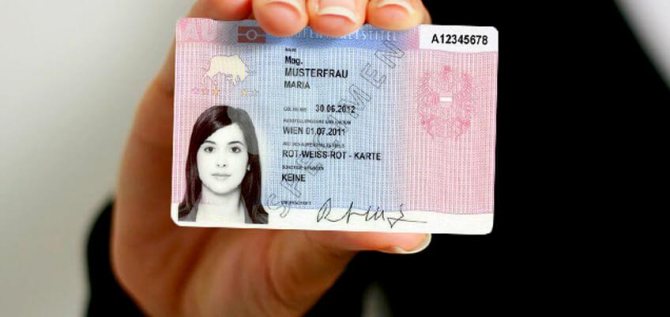
How to prepare for moving
Before you migrate, you need to have a sufficient amount of information about the economy, culture, political situation, and religion. Otherwise, there is a risk that the foreigner will only lose time and money, but will not stay in this country. What points are best to clarify before moving?
- Requirements for obtaining both residence permit and permanent residence. Any information from the Internet, from familiar immigrants who have already undergone the procedure recently, is important. Pay special attention to small details; as a rule, this is what slows down the process.
- Come to the state as a guest, a tourist. Assess your comfort level, foreign language skills, go to a future employer or to an open day at a university.
- An important factor is climate. Europe has hot summers and mild, warm winters, almost always without snow. Depending on your personal preferences, you need to evaluate this aspect.
- How do local people feel about immigrants? Somewhere they despise newcomers. In other lands, everyone is welcoming to foreigners and offers help.
Moving to Germany in recent years has been complicated by political events and tightening of the rules for issuing permits to refugees from Syria. Immigrants have added problems to the authorities, and the local population and visitors experience considerable discomfort.
How to obtain a residence permit in Europe through investment?
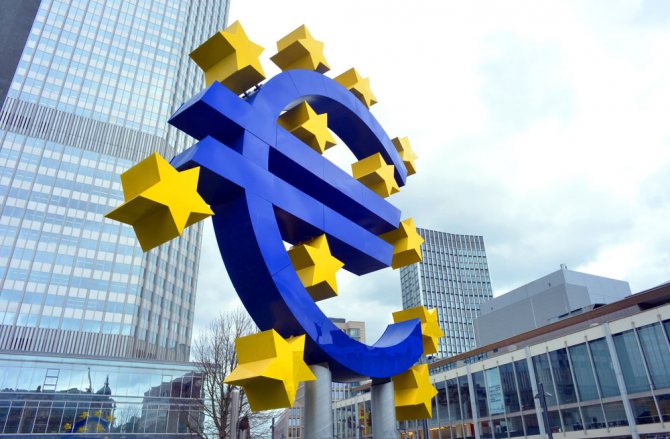
The conditions depend on the country that the migrant chooses for further residence. Here are some examples:
- Malta : you need to buy bonds with a maturity of 5 years in the amount of 250 thousand euros, pay a contribution of 30 thousand euros to the state, and also buy or rent real estate. The purchase must cost at least 270 thousand euros, rent - at least 10 thousand euros per year;
- Portugal : There are two ways to invest for a residence permit in this country. Either invest 1 million euros in a local company, or invest at least 350 thousand euros in a business providing at least 5 jobs;
- Spain : you can buy government bonds worth 2 million euros, invest 1 million euros in a business or shares, or open a bank deposit account with 1 million euros in it.
Important: obtaining a residence permit “in gratitude” for investing in the economy allows you not to confirm knowledge of the local language, culture, laws and history, as well as income. For many, these factors play a primary role in choosing the basis for obtaining a European residence permit.
Retired immigrants
Some people of advanced age want to spend the rest of their days in warm European countries, for example, in sunny Spain. There is a comfortable climate, good economic situation and social policy. A residence permit without the right to work is issued to foreigners when purchasing real estate in the amount of 160,000 euros.
Pensioners do not always manage to adapt to a new life, culture, learn a language, or learn laws; they should be prepared for this.
Residence permit in Italy
The state located in Southern Europe does not provide any guarantees for issuing a residence permit. Regardless of the method you choose. But there is still an optimal way - to get a job in an Italian company. Those who are employed are helped with housing, provided with insurance, and given social guarantees.
It is also possible to open your own business. But this is not easy - you will need to obtain a license, you will have to spend at least 10,000 €, and you will need permission from the city authorities.
European passport by investment
Almost all investment programs in Europe assume that after 5-6 years of permanent residence in a country with a residence permit, the investor will be able to apply for a permanent residence permit. The next step will be obtaining EU citizenship and a second passport.
If an investor is often given a residence permit without additional requirements, then he will be able to naturalize only after he demonstrates a good level of knowledge of the state language and local culture. But with the status of a permanent resident or citizen, you can live, work, do business and study full-time at a university in any country of the European Union you like.
Residence permit for investment in Europe 2021: where is it easier and cheaper? — Cyprus
Cyprus offers profitable investments in European residence permits for Ukrainians, Russians and Belarusians. In this country, you can easily and cheaply obtain a residence permit for real estate as early as 2020.
To qualify for a Cyprus residence permit through investment in real estate in the territory of this jurisdiction, also obtaining the right to Cypriot citizenship by naturalization, you must spend at least €300,000 on Cyprus real estate.
The big advantage is that the investor does not need to buy Cyprus property in a government-approved development project, as is the case in Caribbean countries that issue citizenship for real estate. Read more: The cheapest citizenship offered for money is in the Caribbean
Most countries require that real estate investments made by foreigners to qualify for residency must be held directly in the applicant's name. This complicates wealth planning and strategic asset management in areas such as taxation and inheritance.
Cyprus, however, allows the purchase and ownership of real estate through a legal entity, the beneficial owner of which is the main applicant for residency by investment (and his spouse, if any).
To maintain residency, you do not need to be in the country all year round. It is enough to visit Cyprus once every two years. However, a migrant investor can apply for naturalization after seven years of residence. But to do this, he will have to stay in the country for a seven-year period, living in Cyprus for the majority of each year.
Once naturalized, the successful candidate will be able to live in the country indefinitely. This does not mean that you must be in Cyprus 365 days a year for the rest of your life, but you must intend to reside in Cyprus if you obtain EU citizenship in that country.
Documents for residence permit in Schengen
You will need the following necessary documents to obtain a residence permit in the Schengen area, such as:
- application for a residence permit in the Schengen area;
- valid passport;
- copies of civil passport;
- photographs measuring 35x45 mm;
- insurance;
- statement from the bank;
- certificate of good conduct;
- a document that can confirm the availability of housing for residence for the entire period of validity of the residence permit;
- other documents that may be required in individual cases.
In addition to the main list of documents listed above, you must also prepare additional ones that will confirm your grounds for obtaining a Schengen residence permit. The list of documents to confirm the grounds is formed purely individually and directly depends on the purpose of the trip to one of the countries of the Schengen area. For example, the conditions for obtaining a residence permit may be as follows:
- employment;
- admission to the University;
- opening your own business;
- family reunion;
- marriage;
- other conditions.
Obtaining a residence permit in the Schengen zone is not an easy and time-consuming procedure, during which you cannot do without the help of an experienced specialist. Therefore, if you are looking for such a specialist, then the Tour-Partner company is ready to provide you with the services of our entire team of professionals. We will be able to help you during the collection and preparation of documents, we will advise you in detail about each document and its correct execution, we will tell you about all the nuances and features of the process of obtaining a residence permit.
What does a residence permit in Schengen provide?
A residence permit for Ukrainians in Schengen opens up many opportunities. The main opportunities are living in one of 26 countries for more than three months. Other benefits of a residence permit in Schengen:
- an almost unlimited period of stay in the territory of one of the Schengen countries;
- chance to get an education;
- Full time job;
- the opportunity to open your own business;
- the right to receive social guarantees and legal protection in accordance with current legislation;
- a temporary residence permit allows you to visit all countries that are part of the Schengen zone;
- a chance to obtain permanent residence (permanent residence);
- the opportunity to purchase a vehicle, real estate, open a bank account, etc.
You will be able to get to know other, no less important advantages better after you receive a temporary residence permit in the Schengen zone. For any questions regarding its registration, you can always contact the Tour-Partner company. We will try to help you as soon as possible.
Residence permit for investment in Europe 2021: where is it easier and cheaper? — Malta
You can qualify for a Malta residence permit by purchasing a property worth €320,000 (€270,000 if you are buying a property on the Maltese island of Gozo) plus an investment of €250,000 in Maltese government bonds and a donation to a government fund of €30,000.
Maltese real estate and government bonds may subsequently be sold. That is, you receive a residence permit for a return on investment. But you will not get your donation back.
In this country you can also obtain citizenship by investment. In Malta, a second passport as an investor can be obtained after 12 months of residency if you purchase property worth €350,000 or more, invest €150,000 in government bonds and donate €650,000 to the National Development and Social Security Fund. An additional donation of €25,000 will be required if you are filing a joint application with your spouse.
Perhaps Malta's biggest advantage may be its approach to taxation. Your income from foreign sources may be subject to a flat personal income tax rate of only 15 percent.
In addition, one of the official languages of the country is English, which makes it easier for English-speaking expats to integrate into the local community. But there are actually a lot of downsides. Read more: Citizenship for real estate in Malta: pros and cons, statistics and tips

